Agriculture has always been the backbone of Telangana’s economy, supporting livelihoods and shaping the rural landscape. With fertile soils, diverse crops, and innovative practices, the state is a vital contributor to India’s agricultural output. Telangana’s commitment to strengthening its agrarian sector reflects in its policies, water management projects, and the adoption of modern technologies.
The Role of Agriculture in Telangana
In Telangana, agriculture is more than just an occupation—it’s a way of life. The majority of the population is engaged in farming, with a significant portion of the state’s land dedicated to cultivation. Rice is the staple crop, often referred to as the “rice bowl” of South India, while other important crops include maize, cotton, red gram, and chili.
The state’s varied agro-climatic zones allow for a diverse range of crops, enabling farmers to adapt to changing market demands and climatic conditions. Horticulture, including the cultivation of mangoes, guavas, and turmeric, also plays a significant role in the state’s agricultural economy.
Water Resources: The Lifeblood of Telangana’s Farms
Efficient water management has been central to the growth of agriculture in Telangana. The state government’s flagship program, Mission Kakatiya, focuses on restoring irrigation tanks and reservoirs, ensuring water availability for farming communities.
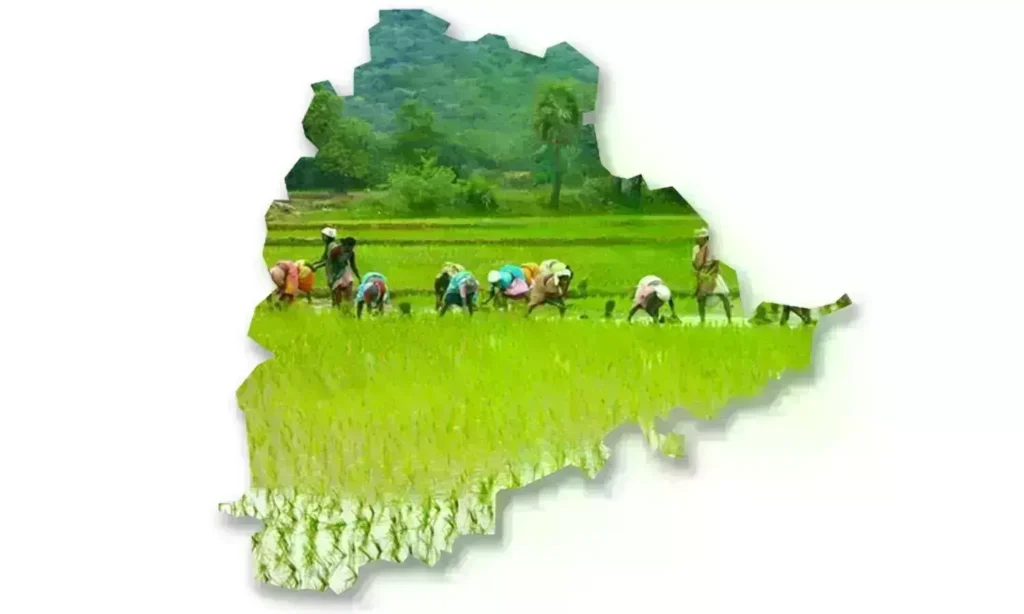
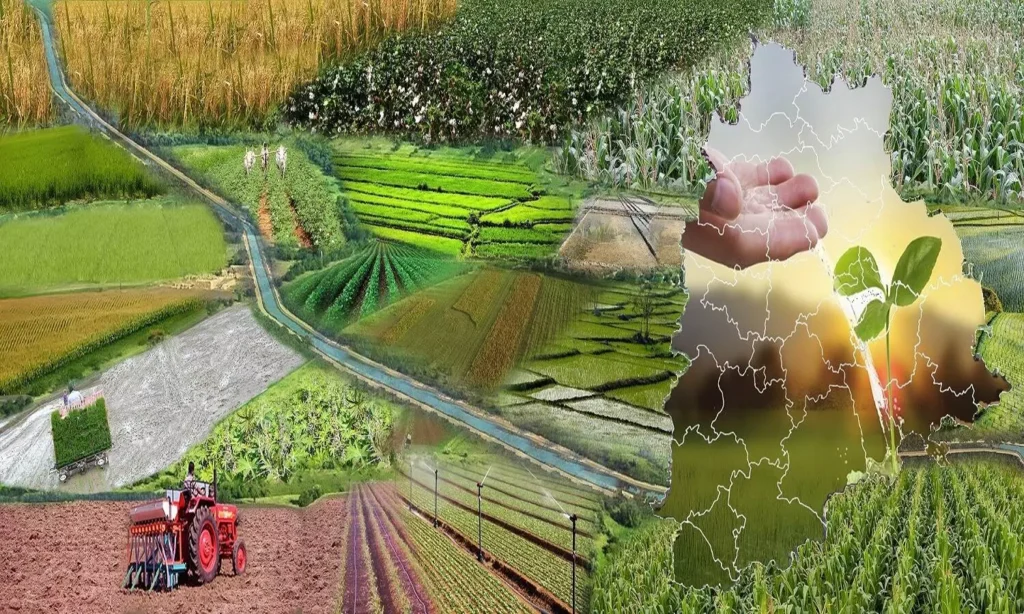

The Kaleshwaram Lift Irrigation Project, one of the largest irrigation projects in the world, has transformed vast stretches of arid land into fertile farmland. This project exemplifies Telangana’s innovative approach to addressing water scarcity and boosting agricultural productivity.
Modernization in Agriculture
Telangana’s farmers are increasingly adopting modern agricultural practices to enhance yields and improve efficiency. The state promotes the use of high-yield variety seeds, organic farming, and precision agriculture techniques. Digital platforms and mobile apps provide farmers with real-time weather updates, market prices, and farming tips, bridging the gap between technology and rural areas.
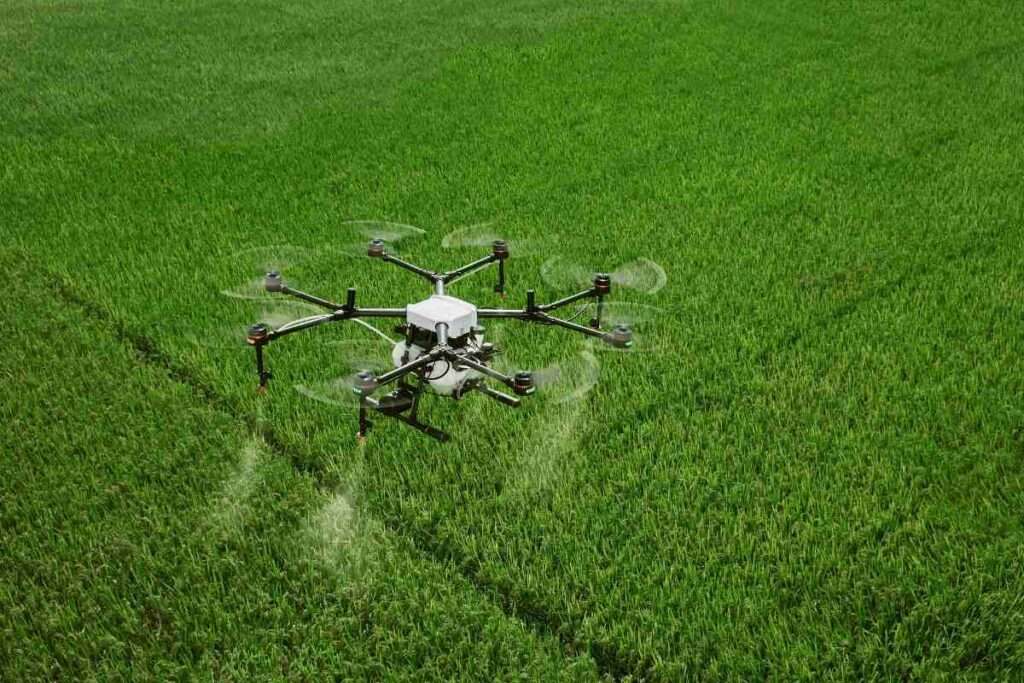
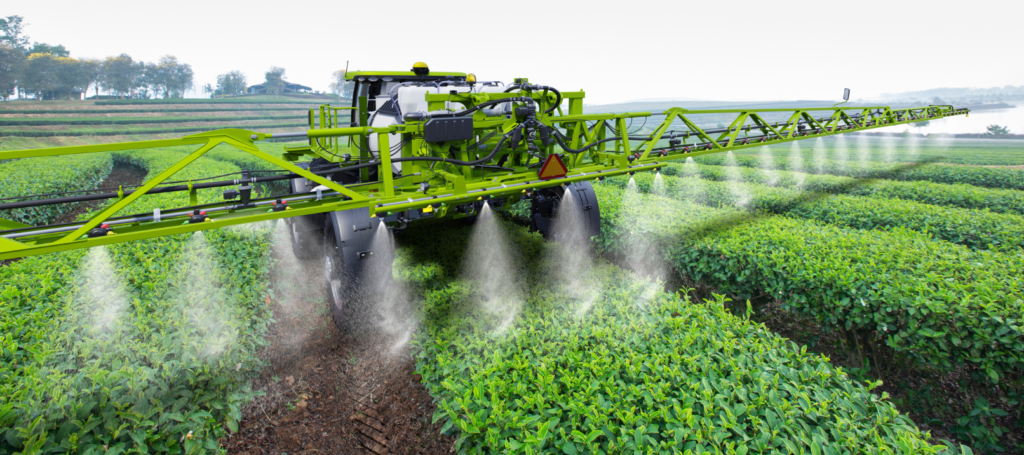

Additionally, Telangana’s focus on mechanization has reduced labor dependency, enabling faster and more efficient farming. Subsidized equipment and training programs have further empowered farmers to embrace innovation.
Challenges in Agriculture
Despite its progress, agriculture in Telangana faces several challenges. Erratic rainfall patterns, rising input costs, and fluctuating market prices pose significant risks to farmers. Soil erosion and groundwater depletion are environmental concerns that need urgent attention.

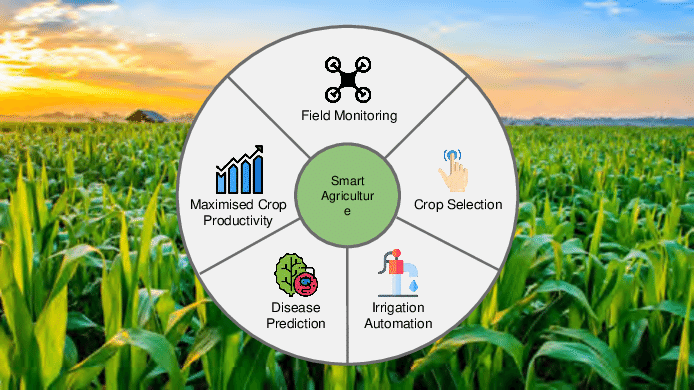
The state has implemented programs to address these issues, including crop insurance schemes and financial support during droughts or floods. Efforts to promote sustainable farming practices aim to mitigate long-term environmental impact and ensure resilience.
The Future of Agriculture in Telangana
Telangana’s vision for agriculture is centered on sustainability, innovation, and inclusivity. The state is exploring renewable energy solutions like solar-powered irrigation and promoting agro-based industries to create additional revenue streams for farmers.
With ongoing investments in infrastructure, research, and farmer welfare, Telangana is poised to strengthen its position as a leader in Indian agriculture. The collaborative efforts of the government, farming communities, and private sectors promise a brighter, greener future for the state’s agrarian economy.
Conclusion
Agriculture in Telangana is a story of resilience, innovation, and progress. From traditional farming methods to cutting-edge irrigation projects, the state exemplifies the potential of blending heritage with modernity. As Telangana continues to address its challenges and embrace new opportunities, its agricultural sector remains a cornerstone of its identity and economic strength.



